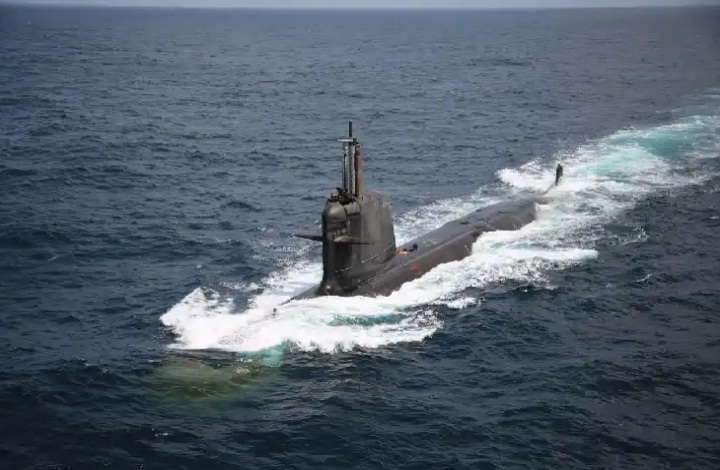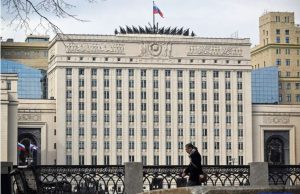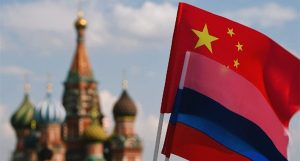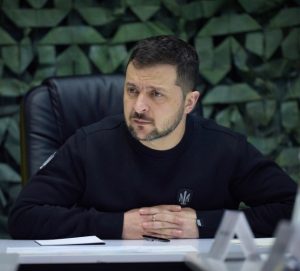The 12-metre-long (39 ft) Bulava missile was designed to be the backbone of Moscow’s nuclear triad and has a range of more than 8,000km (5,000 miles)…reports Asian Lite News
Russia has said it successfully test-launched an intercontinental ballistic missile capable of carrying nuclear warheads from one of its submarines.
Sunday’s launch comes just days after Russian President Vladimir Putin signed the withdrawal of its ratification of the global nuclear test ban treaty in a move Moscow argued was needed to bring it into line with the United States.
“The new nuclear-powered strategic missile submarine cruiser Emperor Alexander the Third has successfully launched the Bulava sea-based intercontinental ballistic missile,” Russia’s defence ministry said in a statement on Sunday.
The missile, which the Federation of American Scientists says is designed to carry as many as six nuclear warheads, was launched from an underwater position in the White Sea off Russia’s northern coast and hit a target thousands of kilometres away on the Kamchatka peninsula in the Russian Far East.
The Emperor Alexander the Third is one of Russia’s new Borei-class nuclear submarines that carry 16 Bulava missiles each and are more manoeuvrable and quieter than previous models.
Intended to be the core naval component of the nation’s nuclear forces, the Russian navy currently has three Borei-class submarines in service, one more is finishing tests and three others are under construction, according to the defence ministry.
“Firing a ballistic missile is the final element of state tests, after which a decision will be made to accept the cruiser into the Navy,” the ministry statement said.
The 12-metre-long (39 ft) Bulava missile was designed to be the backbone of Moscow’s nuclear triad and has a range of more than 8,000km (5,000 miles).
Since rising to power in 1999, Putin has increased military spending and sought to rebuild Russia’s nuclear and conventional forces after the chaos that accompanied the fall of the Soviet Union more than 30 years ago.
Moscow’s full-scale invasion of Ukraine has severely damaged its relations with the US and the European Union which have also been alarmed by Putin’s willingness to escalate nuclear rhetoric. Last month, he said he was not ready to say whether Russia should resume nuclear testing.
Kremlin spokesman Dmitry Peskov said in an interview aired on Sunday that relations with the US were below zero.
“Relations are at zero – or I would say below zero,” Peskov said, though he added that at some point, the leaders of Russia and the United States would have to resume contact.
“Putin has repeatedly stated that he is ready for any contacts,” Peskov said.
The 1996 Comprehensive Nuclear Test Ban Treaty treaty outlaws all nuclear explosions, including live tests of nuclear weapons, although key countries — including the US and China — have never ratified it.
Earlier this year, Russia also suspended participation in the New START treaty, the last major nuclear arms control treaty between Moscow and Washington, but said it would continue to respect the caps on nuclear weapons set by the treaty.
ALSO READ-Moscow eases norms for Indians to open accounts in Russian banks





